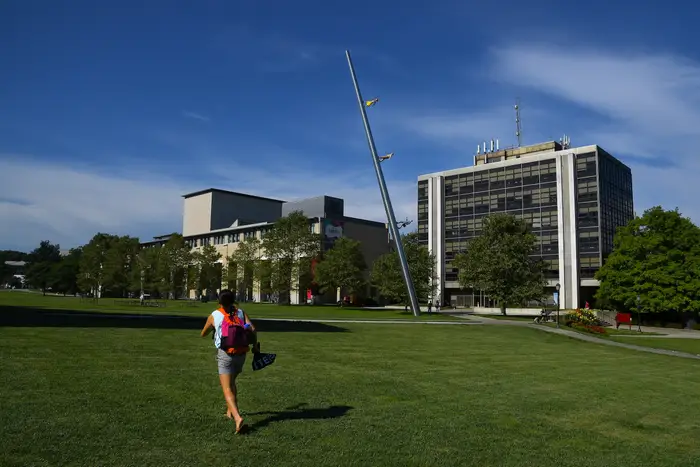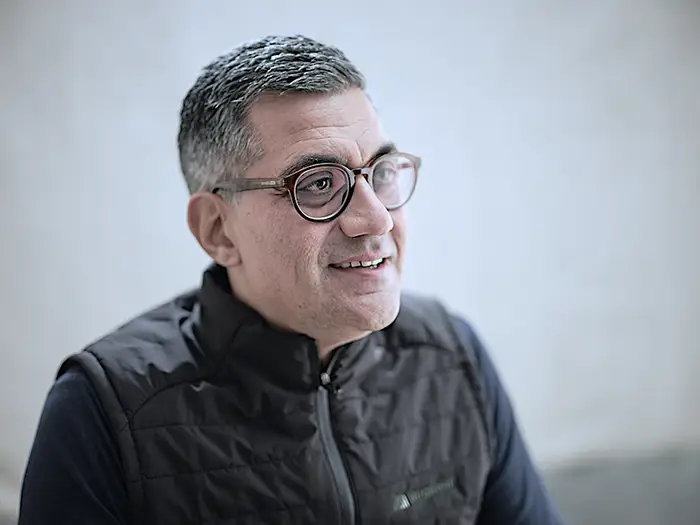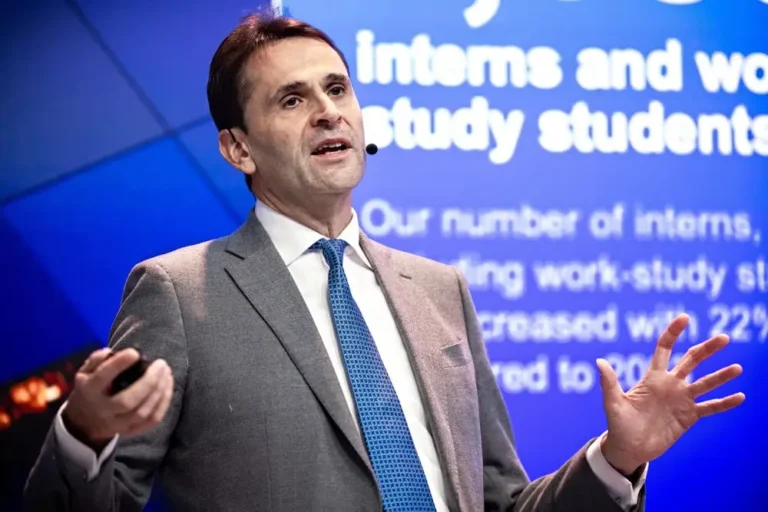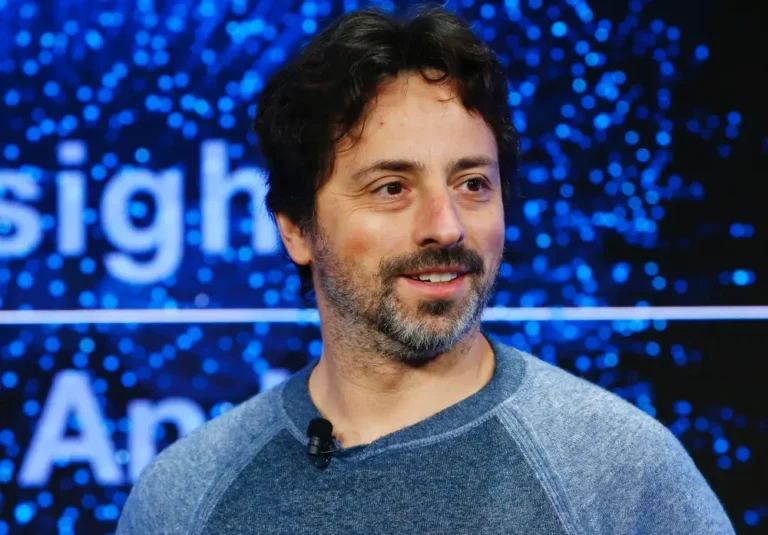Our crisis of loneliness, the new bet investors are going after
Following the announcement that their prominent Israeli businessman father, Benjamin Gaon, had kidney cancer, Benjamin Gaon’s son Boaz Gaon and his family stayed by their father’s side for many years. Gaon, also known by his nickname Benny, was diagnosed with additional types of cancer before passing away in 2008 from a leukemia-related illness.
The younger Gaon felt a profound lack of social support from people who had been in his shoes, despite the fact that his father had access to some of the best doctors in the world. This experience served as the impetus for the creation of the startup company Wisdo Health, which assists individuals in joining groups, making connections with others who share similar experiences, and locating resources such as therapists.
Gaon approached the well-known venture capitalist Marc Andreessen not long after he had founded the startup company. He shared his vision with Andreessen.
Gaon recalled that Andreessen had said something to the effect of “Oh, so you’re in the loneliness market.” within a couple of minutes.
He had never thought of it in that way before, but that was exactly the question that Wisdo was attempting to answer. Gaon found it noteworthy at the time that Andreessen, “one of those investors who is known for seeing where the market is going,” appeared to have identified loneliness as its own market. Andreessen is known as “one of those investors who is known for seeing where the market is going.”
In January, Wisdo was able to successfully close a Series A funding round worth $11 million. The CEO and founder of 23andMe, Anne Wojcicki, participated in the funding round that was led by an Israeli businessman named Marius Nacht. (Andreessen Horowitz, the venture capital firm that Andreessen cofounded, did not participate in the investment.)
Although Wisdo is a relatively small company, its funding reflects a wider focus that is currently being developed in the areas of healthcare technology and finance.
In recent years, loneliness and the associated risks, which include depression, anxiety, dementia, and premature death, have become more obvious. US Surgeon General Vivek Murthy declared loneliness an epidemic earlier this year in a public advisory. This predicament was made much worse as a result of the isolating effects of the pandemic. The advisory that Murthy issued in May made reference to recent surveys of adults in the United States, in which it was found that half of respondents reported experiencing feelings of loneliness.
Investors have recently started talking about how lonely they are as a topic for conversation. It is essentially taking the form of an investment thesis at this point.
Investors are looking to put their money into new businesses and services that offer solutions that, in their opinion, have the potential to help people and save companies money over time. According to the Surgeon General, the cost of older adults’ social isolation accounts for approximately $6.7 billion of excess Medicare spending annually. The cost of employees’ work absences in the United States that are tied to the stress they feel as a result of loneliness costs employers an estimated $154 billion annually.
Various start-up businesses, including Wisdo, Pyx Health, Peoplehood, Meeno, and Humans Anonymous, are attracting financial backing from investors, most prominently venture capitalists. According to Betsy Hoover, founder of the venture firm Higher Ground Labs, promising young companies are seeking to be part of the solution, and the space is still in its infancy. Insider reported this information. In the meantime, more established businesses such as Bumble and Meetup are promoting themselves as having a role in the fight against the loneliness epidemic.
Every new company is taking its own approach to combatting the growing problem of isolation. Others seek to facilitate face-to-face interactions, while some work within the healthcare system to assist in identifying individuals who may be at risk of experiencing the negative effects of loneliness.
Recent research by Gaon has drawn parallels between efforts to combat the epidemic of loneliness and the rise of social networks and the gig economy in the past two decades, both of which have been fueled by an entrepreneurial spirit among people creating new things.
“At least from where I’m standing, I see that type of energy, that innovation, in companies who are trying to solve loneliness and turn back the clock on what happened to human relationships in the past two decades,” said the politician.
Investors are looking for opportunities to profit from businesses that have the goal of assisting people who are suffering from loneliness, a condition that can be so debilitating and all-consuming that it instills fear even in those of us who are surrounded by family and friends. Welcoming you to the age of social and relational health as a service, which are terms used by both the surgeon general and businesses to describe what people need to cultivate in order to lead healthy lives.
In the year 2017, Rylie Sarabia was given a diagnosis of bipolar disorder, and she disclosed to her parents that she was going through an intense period of loneliness. Because of this, her parents, Cindy and Anne Jordan, who had already sold their first health technology company several years earlier, decided to start the Arizona company Pyx Health. In an essay that she wrote a year ago, Cindy stated that “ultimately, addiction took her life.” “But, like too many others, Rylie’s addiction was deeply rooted in her core struggle: chronic loneliness.”
A matrix of people’s healthcare histories and data, such as whether they live alone, is used by health-insurance plans called Pyx and its algorithm to identify policyholders who appear to be at risk of experiencing loneliness. One of the data points included in the matrix is whether the policyholder lives alone. It provides recommendations for care, and its staff acts as contacts for individuals who are looking for support, such as companionship and assistance navigating the healthcare system.
TT Capital Partners, a healthcare-focused private equity firm based in Minneapolis, made the announcement earlier this summer that it had acquired the majority of the company through an investment. When it comes to finding solutions to the epidemic of loneliness, Dawn Owens, the chief executive officer of TT Capital Partners, said that it is not enough for a business to simply have the appearance of being helpful.
Owens said that Pyx is seeing that “you have to have proven results and performance and a return on investment,” and he added that Pyx is seeing that. Both the company and Pyx have chosen not to disclose the exact amount of the investment.
Julie Rice and Elizabeth Cutler, the founders of SoulCycle who sold their massive spinning-class empire to Equinox in 2011, are attempting to address the market by building communities. This is in contrast to Pyx, which is addressing loneliness as an offering in conjunction with institutional healthcare practices. Peoplehood, their brainchild, is a New York City startup that hosts guided in-person and online group conversations with a maximum of twenty participants in each setting. It’s kind of like a group therapy session, but the end goal is to improve people’s connections with one another, so it’s kind of like that.
Peoplehood is beginning to work with the management teams of other companies in order to provide ways for employees to improve their ability to collaborate with one another, get to know one another, and ultimately raise their level of productivity. Rice declined to specify how much money Peoplehood had raised, but the consumer-focused venture firm Maveron, which has backed brands such as Allbirds and Everlane, has invested in the company as a seed investor.
“I remember being in rooms with SoulCycle, and people were asking us, ‘But how are you going to scale a human experience?'” Rice added, “And I think that people cannot underestimate our need for human experience.”
Living in a location that is physically remote from people who care about you is a significant contributor to the epidemic of loneliness. Founders like Phil Levin want to assist in bringing friends and family members into closer proximity with one another. The summer saw the debut of his company, which is called LiveNearFriends. Culdesac, a startup backed by Khosla Ventures that built a car-free and walkable neighborhood in Arizona, was one of the community businesses that he had previously assisted in getting off the ground.
Levin left Culdesac in 2021, and his new project is an app that alerts people when homes become available nearby. The app’s goal is to assist users in living in close proximity to one another and coordinating their housing needs. According to Levin, LiveNearFriends is expanding its fundraising efforts beyond the scope of friends and family. To this point, he has seen increased interest from a variety of groups, such as people with young children who desire to keep their friends and family close by, as well as recent college graduates who long for the connectedness they experienced in college.
In the meantime, some companies operating in this space have incorporated artificial intelligence into their business models revolving around solitude. An AI-powered anti-loneliness startup called Meeno, which was founded by Renate Nyborg, the former CEO of Tinder, announced that it had raised $3.9 million in seed funding from Sequoia Capita, AI Fund, and NEA in the past week. Meeno is focused on combating loneliness. In a blog post, Nyborg stated, “The loneliness crisis is bigger, and more urgent, than anything I’ve worked on before.”
“I believe AI companions won’t be about single-player mode only — humans chatting with AIs, and AI replacing human friendships — but AI companions will act as matchmaker and social facilitators between people,” investor and investor Hugo Amsellem stated. He made an investment in Ava, a French company backed by OpenAI that developed a digital-avatar friend and is working toward a dating experience in which Ava assists you along the way. Ava was created in France.
New formats are being used by new businesses in this sector. Pre-seed funding in the amount of $3.1 million has been secured for the mobile application Humans Anonymous by Looking Glass Capital, General Catalyst, and Backend Capital. Following his participation in Alcoholics Anonymous meetings, Humans Anonymous founder and current CEO Nate Tepper was inspired to start the company that bears his name.
He wanted to recreate the aspects of the sessions that had the greatest impact on him, such as anonymously sharing your experiences with other people who were in the same position as you, as he wrote on X. According to Tepper, the most popular communities on the app are those for people who are experiencing feelings of isolation and anxiety. The format consists of anonymous audio spaces in which people can speak or listen to one another.
TikTok is Humans Anonymous’ primary channel for user acquisition, and the community has approximately 200,000 members, the majority of whom are in their teens and early 20s.
“The investment was more broadly under the thesis of mental health,” said Adam Besvinick, the CEO of the venture firm Looking Glass Capital. “The investment was more broadly under the thesis of mental health.” “The idea that people going through a shared event, career path, or life stage would have a deeper level of empathy for someone else who was in that same place, rather than if I had anxiety and I heard a healthcare professional discussing anxiety.”
Skepticism is permeating all of the investor interest, as well as the enthusiasm of the founders. Can technology play a part in the solution to a problem as complex as loneliness, especially considering how much it has contributed to making the problem worse?
According to documents that were leaked to reporters by the Facebook whistleblower Frances Haugen, an internal study conducted by Facebook in 2018 and now known as Meta found that approximately 36% of users reported feeling lonely in the previous month. Bloomberg reported a year ago that internal researchers at Meta “acknowledged that the company’s social networks could be contributing to an increase in feelings of isolation rather than helping to alleviate them.”The media outlet continued by saying that the tech giant “wants to address the problem but doesn’t know how.”
Studies have found that a combination of factors, including the rise of online communities and a decades-long decline in attendance at religious and faith-based groups, labor unions, and local clubs — all of which have traditionally been local ways of bringing people together — is another factor at the core of the loneliness epidemic. According to Hoover, this fact was one of the primary motivating factors behind Higher Ground Labs’ investment in Peoplehood.
In reference to the widespread problem of loneliness, Hoover stated, “There is innovation to be done here, and I think it is possible to do it with a for-profit lens.” “In point of fact, we are required to proceed in that manner. I believe that the way that online communities have been envisioned and constructed, which have ultimately resulted in isolating and harmful behaviors, is a contributing factor in how we got into this mess. However, we are able to reimagine it in a different way. Since market solutions are a contributing factor in how we got into this mess, it is imperative that they also contribute to how we get out of it.
Alexa von Tobel, who is the founder and managing partner of the early-stage venture capital firm Inspired Capital, has made a series of investments with connection and loneliness in mind. One of these investments was in Hopscotch, which is a company that connects families and their children with mental-health care. In the year 2020, Inspired presented a thesis that proposed the concept of loneliness as a primary area of interest for the company to invest in.
“When you’re investing in something where there’s somebody suffering, you have to be really thoughtful that the mission and alignment of the company’s revenue and success models actually match the success of the customers,” according to von Tobel. It is suitable for all businesses in which closeness to the customer is of paramount importance. I don’t see any significant differences between it and other kinds of businesses.
David Spinks is a consultant and author who helps companies build communities. Several years ago, he sold a company he founded to Bevy, a company that focuses on events and communities. Spinks is optimistic about the potential for businesses that set out to reduce feelings of isolation and loneliness. Along with the other individuals Insider interviewed for this piece, he, too, is curious about the businesses and goods that will ultimately make a difference.
“It’s almost like the plastic-bottle industry selling us recycling,” he said, referring to businesses in a more general sense. “Social-media apps cause a problem and then sell us the solution at the same time.”






